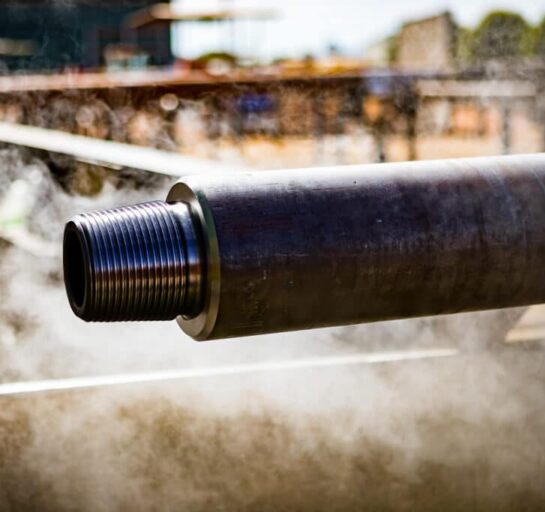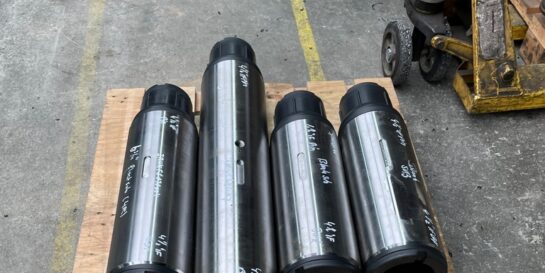Phosphating
Manganese Phosphating Anti-Gall Treatment
Manganese Phosphate Treatment on re-machined and new Rotary Connections prevents galling to the shoulder seal and thread surfaces on initial make-up. This is because the phosphate coating acts as a barrier and physically separates the metal surfaces during initial make-up.
Also, the phosphate process etches microscopic pores in the metal surface which retain the thread dope to provide lubrication between the metal surfaces when high torque loads are applied.

Kampen Machinefabrication performs this treatment by heating up a Manganese Phosphate solution in a special tank to a specific temperature and the newly machined or repaired thread connection is immersed in the solution for a specific period of time.
API Spec 7-1 states that a gall resistant treatment of Zinc or Manganese Phosphate shall be applied to the threads and sealing surfaces of all re-machined and new connections. If a Rotary Shouldered Connection is not phosphate treated, on initial make-up, the sealing shoulders and thread surfaces of the connection may gall and therefore affect its ability to maintain a shoulder seal and correct torque. This can ultimately lead to a failure of the connection.
A galled thread will also damage the threaded connection that it is mating to. In the case of a damaged saver sub connection, there is a good chance that it will damage every connection in the drill string if left unattended.
While Kampen Machinefabriek is happy to repair all of your galled threads, we would recommend that you ask us put your new connections through the Manganese Phosphate treatment. It is a relatively economical treatment and considerably reduces the risk of thread repair bills after use downhole.

Request a quote by completing the next form.
One of our experts will contact you shortly and give you the right informations and quotation you need.
